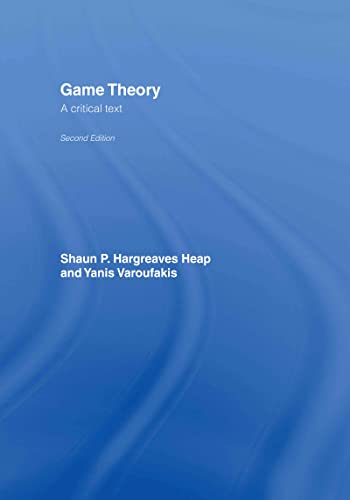In recent years game theory has swept through all of the social sciences. Its practitioners have great designs for it, claiming that it offers an opportunity to unify the social sciences and that it it the natural foundation of a rational theory of society. Game Theory is for those who are intrigued but baffled by these claims, and daunted by the technical demands of most introductions to the subject.
Requiring no more than simple arithmetic, the book:
* Traces the origins of Game Theory and its philosophical premises
* Looks at its implications for the theory of bargaining and social contract theory
* Gives a detailed exposition of all of the major `games' including the famous `prisoner's dilemma'
* Analyses cooperative, non cooperative, repeated, evolutionary and experimental games
